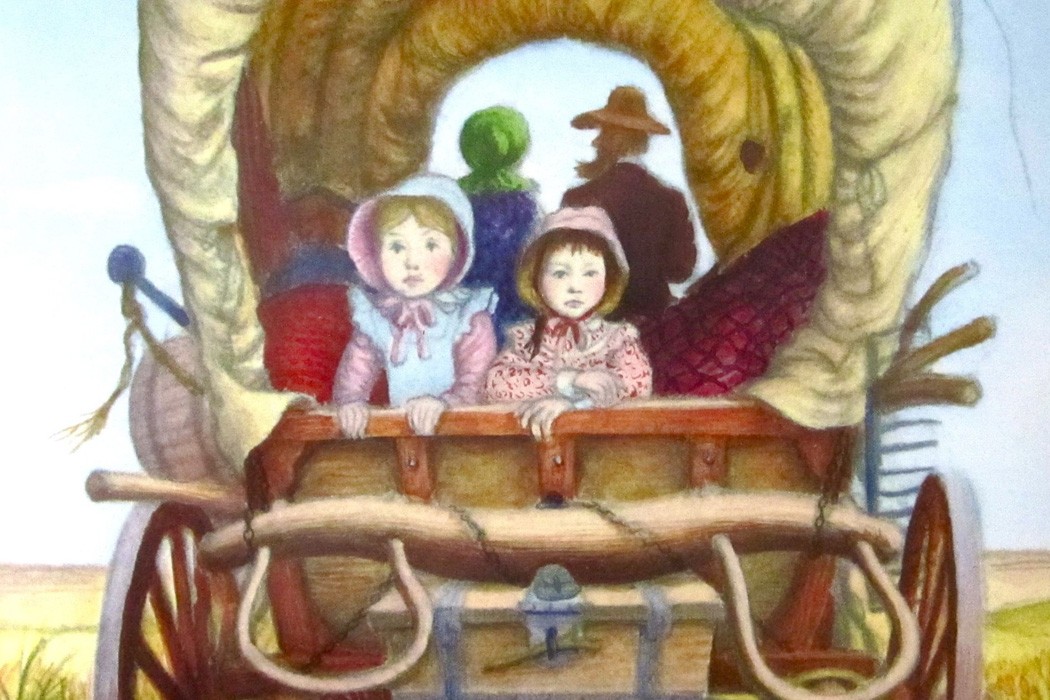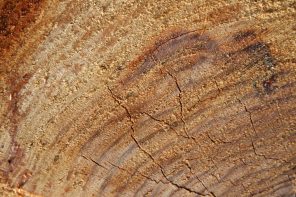Until several years ago, almost everything I knew about farming I learned from the Little House books. The Ingalls family saga was the beloved series in my family, reread aloud more times even than the Chronicles of Narnia and Harry Potter, our other sacred texts. How I remember it is that my dad read to us nearly every night in his calm way, cycling through the series with a regularity akin to the earth’s orbit of the sun. This is an exaggeration, but the influence of those books on my early conceptions of the world can hardly be overstated, as anyone who had a favorite childhood book or series can attest.
The clear, concise way Laura Ingalls Wilder describes the daily tasks of homesteading was an invaluable foundation for me in the sort of spatial-logical reasoning needed to tackle such tasks as building a log cabin, training young oxen, running a farm, or writing a book. The lessons Almanzo learns from his father in Farmer Boy—how to grow a bushel of potatoes and train a horse (and, more importantly, the value of a bushel of potatoes and a well-trained horse)—have stuck with me to this day. That knowledge, and that kind of thinking, has turned out to be surprisingly useful in my adult life, which includes not a few bushels of potatoes. I haven’t wrangled draft animals yet, but I figure it’s only a matter of time. And while building a chicken house of 2×4’s and plywood is not the same as building a cabin of newly-felled logs and river rocks, many of the same basic principles apply to both projects.
Yet what of my chicken house, had Wilder not cared to share with me the details of her father’s building projects? Or, worse, had she not cared enough to get those details right? I may have never started that chicken house in the first place, overwhelmed by the task I’d set myself, a person with no prior construction experience. I could have read the wrong books as a child, ones that presented building as an arcane ritual, with steps that didn’t make sense and details that didn’t follow. As it was, it was hard enough to find the confidence I needed to start the project. But if Pa could build an entire house by himself in the middle of the vast prairie, with nothing more than a hammer, axe, and awl, then I could certainly manage a tiny hut for my chickens with my array of power tools (not to mention my boughten nails). In reading Little House on the Prairie, I picked up stray details—the importance of lining up hinges correctly, how to frame a door, how to skid logs—that came back to me as I worked, saving me from countless rookie mistakes. Not to say I didn’t make mistakes—far from it. But the knowledge I gained from the Little House books gave me a place to start, confidence, and common sense.
There are other ways to gain those skills. Actual, practical experience does a lot more for teaching someone how to build than reading a kids’ book about homesteading. But the way our Western educational system is set up—for good or for ill—privileges the written word as an ultimate authority. That’s a lesson I assimilated very early, after I assimilated how to talk and before I assimilated the rules of grammar and the spellings of common words. This is how we learn the things most important for us to know — by osmosis. Bits of trivia collect in our minds like bits of kelp along tide lines on a beach, until enough clump together to form sets. The social customs of elementary school. How to behave in a restaurant. All I know about corn. What it means when someone is crying. Where confidence comes from. Zoology. First aid. We eventually forget the pieces that we don’t use, and build and build on the ones we do, our minds playing oysters and hopefully turning trivia into gems of solid good sense and knowledge.
But again, what if the details we pick up are wrong or inconsistent? What then of our hoped-for pearls? If so much of what we pick up, especially in childhood, comes from books, what does that mean for the writers of those books?
I recently read a novel that had received nothing but glowing reviews from the major newspapers, Kirkus—even Goodreads had hardly anything bad to say about it. But I could barely finish the book. Tiny details leapt out at me: the use of “harrow” to mean “furrow,” a complete disregard for the chemistry of bleached hair, a small orchard which a single gardener managed to cut down and cart off in an afternoon, a spilled cup of tea freezing in a way it could only have done were the story set in Antarctica in June, not London in October. None of these details were essential to the plot. They were window-dressing, clearly there to evoke a mood. Throwaway. But they jarred me right out of the story, and I was left at the end of the novel with the uncomfortable sensation that the author was either stupid, or unobservant and lazy. A quick trip to the reference work of her choice could have told her that a harrow is a farm implement, not the shallow ditch it makes in the ground. A minute’s thinking through the process would be enough to show that one person with an axe would take more than an afternoon to fell and cart off all those trees.
Those details were not throwaways. A book is made up of a series of details strung together, and for the book to be a good one, every note in that series should ring true. So much of our life experience comes to us first through books—as children we travel to distant lands, the outer reaches of the imagination, and the inner depths of the psyche for the first time in books. We step into the shoes and minds of people very different from ourselves, and very similar. We encounter daunting construction projects and living embodiments of evil, robots and pigs, the basics of physics, chemistry, biology, psychology, literary criticism, the entire subject matter of Oberlin College’s syllabus, and on and on, for the very first time in books. We assimilate that information. Louis L’Amour famously put it, “For one who reads, there is no limit to the number of lives that may be lived, for fiction, biography, and history offer an inexhaustible number of lives in many parts of the world, in all periods of time.” And we get a healthy start on all this living before we’ve even hit puberty. If books are not the first place we encounter new information, then at very least they are where that information is confirmed or shown to be false, and thus the cultural weight of authorial authority falls squarely on the shoulders of the writers.
It’s a scary business to set about writing a book—all those details to get right, all those things to care about, to look up, to get out into the world and observe. But the alternative is showing ourselves up as either stupid or negligent, willing to sacrifice the reader’s suspension of disbelief on the altar of aesthetics. All the scene-dressing in the world won’t hide a shoddily-constructed set. It’ll still be wobbly, no matter how brilliant your actors are, or how bright your throw pillows. Like it or not, books, no matter how trashy, function in an educational capacity. Give me one of those time-traveling Viking Marine romances in which the historical details are accurate over a literary novel in which the main character’s bleached hair darkens as the bleach “washes out.” At least I’ll learn something from the Viking Marine. It’s questionable whether I would learn anything from Mr. Bleach Dye, other than the fact that I, as an author, could get away with not caring enough to look things up either.
If the devil’s in the details, then that’s where the divine is too, encouraging us all—writers and readers—to care. And it is caring, and practicing caring about even the most mundane of details, which enables us to write the true stuff, the stories that do not merely educate us, but also enrich us, expand our worldviews, and help us grow.




